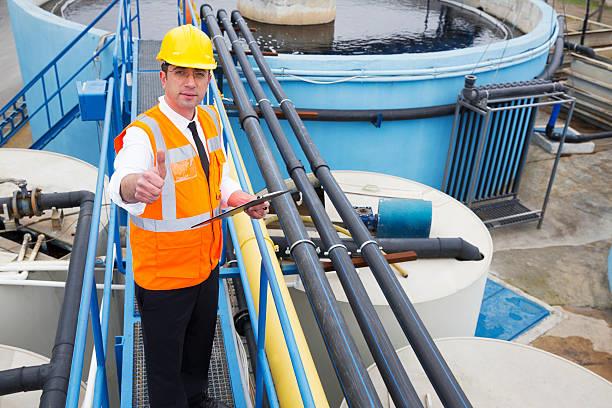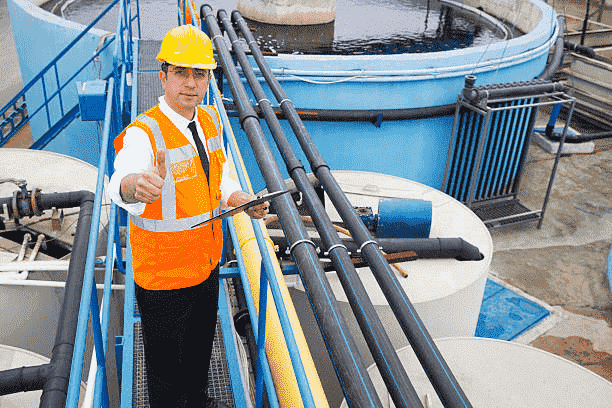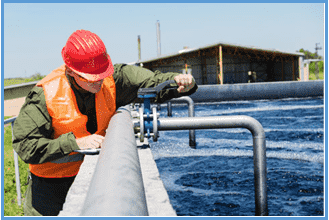COURSE OVERVIEW
WATER AND WASTE WATER TREATMENT ENGINEERING

OVERVIEW
| COURSE TITLE | : | TE0130 : Water Network Systems & Pumping Stations |
| COURSE DATE | : | May 06 - May 09 2024 |
| DURATION | : | 4 Days |
| INSTRUCTOR | : | - Days |
| VENUE | : | Al Khobar, KSA |
| COURSE FEE | : | $ 4500 |
| Request For Course | ||
OTHER SCHEDULED DATES
| Date | : | Aug 12 - Aug 15 (4 Days) | Location | : | Doha, Qatar | Classroom Fee (US$) | : | $ 5000 | Course Info |
| Date | : | Dec 16 - Dec 19 (4 Days) | Location | : | Abu Dhabi, UAE | Classroom Fee (US$) | : | $ 4500 | Course Info |
Course Description
This practical and highly-interactive course includes practical sessions and exercises. Theory learnt will be applied using our state-of-the-art simulators. Water network systems use interconnected elements such as pipes, pumps and service reservoirs to convey treated water from one or more sources to customers spread over a wide area. Given that capital costs and ongoing maintenance and repair costs of these systems are often enormous, the need for more economic and efficient designs is very important. Water network systems are composed of three major components: pumping stations, distribution storage, and distribution piping. These components may be further divided into subcomponents, which in turn can be divided in sub-subcomponents. For example, the pumping station component consists of structural, electrical, piping and pumping unit sub-components. The pumping unit can be divided further into subsubcomponents: pump, driver, controls, power transmission. The exact definition of components, subcomponents and sub-subcomponents depends on the level of detail of the required analysis and to a somewhat greater extent, the level of detail of available data. In fact, the concept of component-subcomponent-subsubcomponent merely defines a hierarchy of building blocks used to construct the water distribution system.This state-of-the art course is designed to provide participants with a good overview of the latest methods, materials, techniques and tools for water system networking and pumping stations. This course will present an up-to-date overview of the current water network design procedures and develop basic guidelines to be followed in both the design and the redesign of water networks and pumping stations. The course treats the water network design problem in a comprehensive and systematic framework, starting with objectives and elaborating on various technical design features. It will show how to apply the fundamentals of various disciplines and subjects to produce a well-integrated pumping station that will be reliable, easy to operate and maintain and free from design mistakes. In a field where, inappropriate design can be extremely costly, there is simply no excuse for not taking expert advice from this course. Further, this course will tackle the Industry-specific issues and problems that engineers face every day. It will cover design, installation, operation, maintenance, retrofitting and rehabilitation of water network system and pumping stations. A copy of the EPANET Simulator on CD will be given to each participant. Participants are encouraged to bring their own laptops for the practical sessions.
TRAINING METHODOLOGY
This interactive training course includes the following training methodologies as a percentage of the total tuition hours
LecturesWorkshops & Work Presentations
Case Studies & Practical Exercises
Videos, Software & Simulators
In an unlikely event, the course instructor may modify the above training methodology before or during the course for technical reasons.
VIRTUAL TRAINING (IF APPLICABLE)
If this course is delivered online as a Virtual Training, the following limitations will be applicable
| Certificates | : | Only soft copy certificates will be issued to participants through Haward’s Portal. This includes Wallet Card Certificates if applicable |
| Training Materials | : | Only soft copy Training Materials (PDF format) will be issued to participant through the Virtual Training Platform |
| Training Methodology | : | 80% of the program will be theory and 20% will be practical sessions, exercises, case studies, simulators or videos |
| Training Program | : | The training will be for 4 hours per day starting at 09:30 and ending at 13:30 |
| H-STK Smart Training Kit | : | Not Applicable |
| Hands-on Practical Workshops | : | Not Applicable |
| Site Visit | : | Not Applicable |
| Simulators | : | Only software simulators will be used in the virtual courses. Hardware simulators are not applicable and will not be used in Virtual Training |
RELATED COURSES

TE0254 : Water Treatment Process Operations, Process Upsets, Troubleshooting & Optimization, Plant & Equipment Integrity and Technical Drawings, Documents & Information Management Systems
- Date : May 19 -May 23 / 3 Days
- Location : Dubai, UAE
- Course Details Register

TE0254 : Water Treatment Process Operations, Process Upsets, Troubleshooting & Optimization, Plant & Equipment Integrity and Technical Drawings, Documents & Information Management Systems
- Date : May 12 -May 16 / 3 Days
- Location : Istanbul, Turkey
- Course Details Register

TE0145 : Water Treatment for Plant Utilities, Offsites and Cogeneration
- Date : May 13 -May 16 / 3 Days
- Location : Abu Dhabi, UAE
- Course Details Register
